25 Things That Would Happen to the Planet If the Population Keeps Growing
Spoiler alert: It doesn't look good.
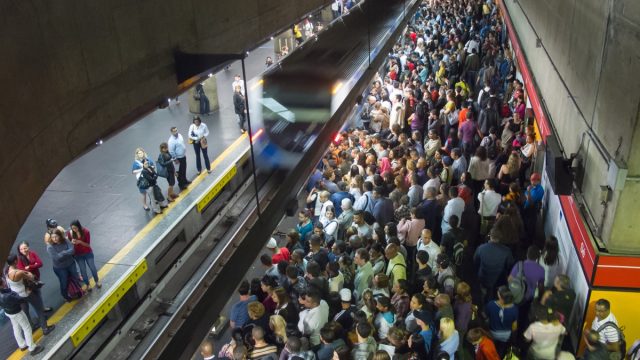
The world's population continues to balloon. From October 2011 to mid-2015 alone, the planet gained some 300 million people, and the United Nations (UN) projects that the population will reach 9.7 billion people by 2050.
This growth shows no sign of slowing, but the potential effects of overpopulation are disastrous. More and more people means fewer and fewer resources, which would create plenty of economic and health crises. Keep reading to learn about what could happen to the planet if the UN's projection turns out to be true.
1
Increased rates of respiratory disease

The increase in air pollution that a larger population would inevitably cause could eventually lead to a rise in respiratory disease and asthma. One 2014 analysis published in The Lancet journal found that in general, exposure to pollution "can contribute to new-onset asthma in both children and adults" and "increase the risk of exacerbations of asthma symptoms."
2
More lung and bladder cancer

Air pollution doesn't just cause asthma. Rather, the International Agency for Research on Cancer (IARC) recently classified outdoor air pollution as a cancer-causing agent after conclusively linking it to both lung cancer and bladder cancer.
3
And more skin cancer

As air pollution worsens due to a rapidly growing population, it will also cause a depletion in the ozone layer. And, as Dr. Jayakanth M. J., a consultant at the Apollo Clinic in India, explains, increased pollution depletes the ozone layer, which in turn means that it will "no longer protects us from the harmful ultraviolet (UV) rays of the sun causing skin problems such as skin cancers and premature aging of the skin."
4
Proliferation of infectious diseases

Viruses spread more easily when people are confined in close quarters. In fact, according to the World Health Organization (WHO), "inadequate shelter and overcrowding are major factors in the transmission of diseases with epidemic potential." Should the population continue to grow at an alarming rate, needless to say that people are going to find themselves with much less personal space and at a much higher risk of contracting deadly diseases like meningitis, typhus, cholera, and more.
5
Overwhelmed and overcrowded hospitals
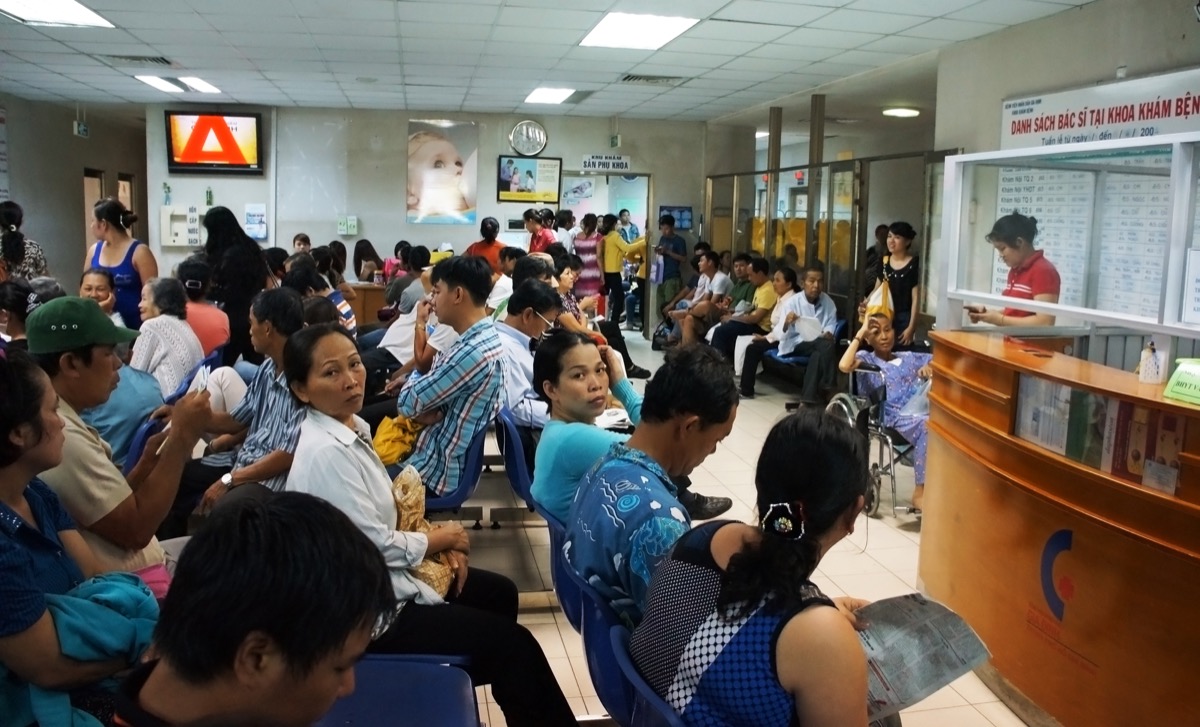
As we've seen after several natural disasters, the combination of too many people and not enough medical resources can create a dangerous situation. WHO notes that when suffering from overcrowding, "public structures such as health facilities not only represent a concentrated area of patients but also a concentrated area of germs." In other words, a larger population could mean both delayed treatment for those who need it and the further spread of diseases.
6
Higher rates of HIV/AIDS
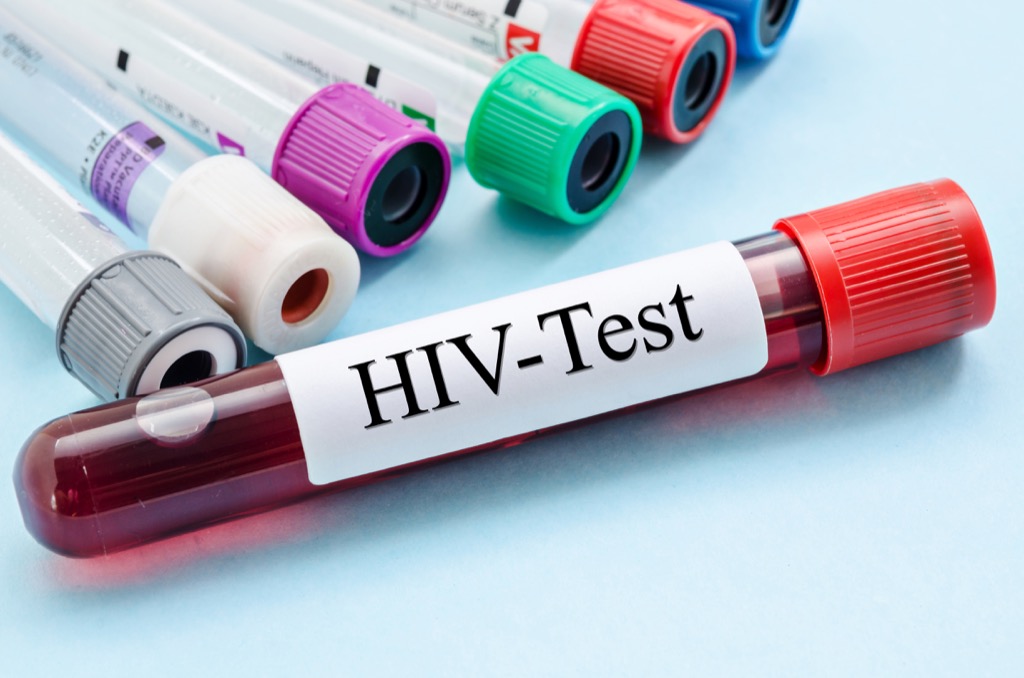
Public policy organization Population Action International writes that "there is frequently overlap among countries with youthful populations, high rates of HIV prevalence, and low access to family planning." In Swaziland, for instance, 69,000 children have been orphaned by AIDS, and the country has "been heavily affected by AIDS-related deaths among working-age adults." Given what scientists have observed in modern societies, an increase in population size combined with a shortage of medical care and supplies could easily cause another HIV/AIDS epidemic.
7
More natural disasters
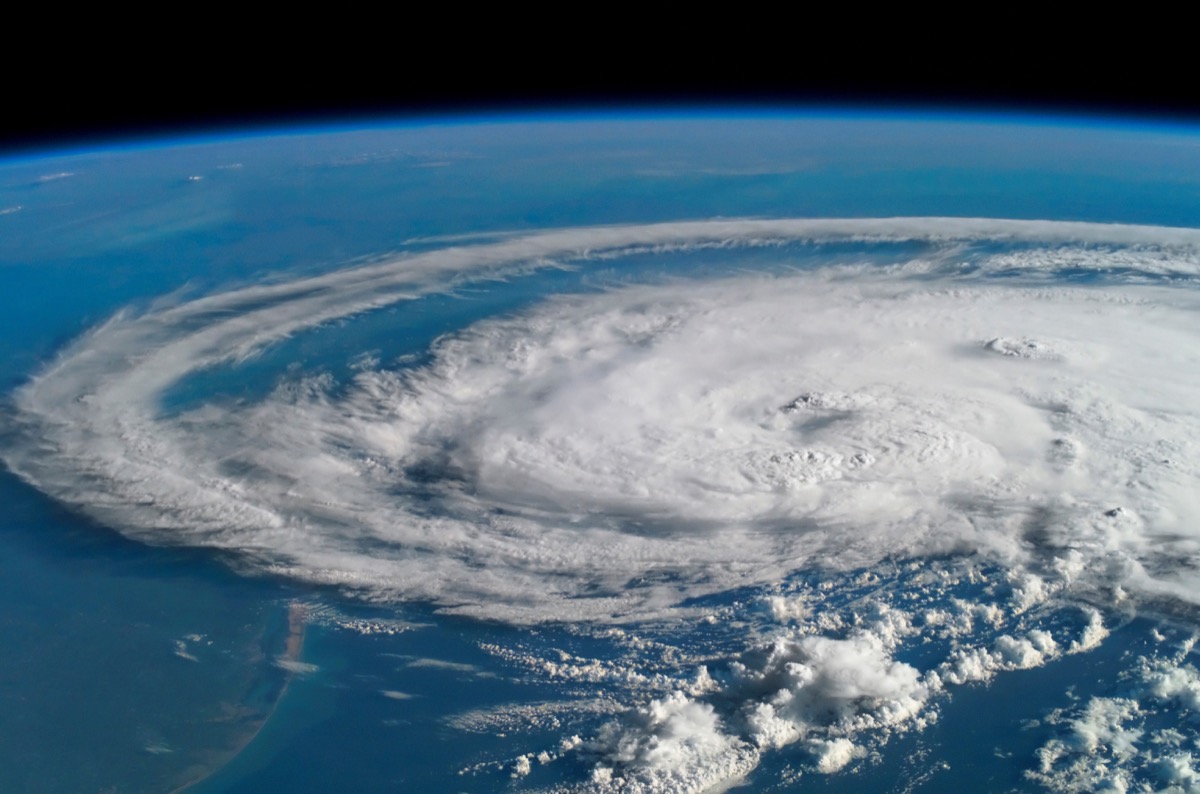
What do overpopulation and natural disasters have to do with each other? Quite a lot, apparently. The more carbon dioxide there is in the environment, the more likely there are to be major natural disasters like hurricanes. In the book Environmental Issues Surrounding Human Overpopulation, researchers note that in India, "overpopulation is making the country prone to natural disasters" like tsunamis.
8
Exacerbated climate change
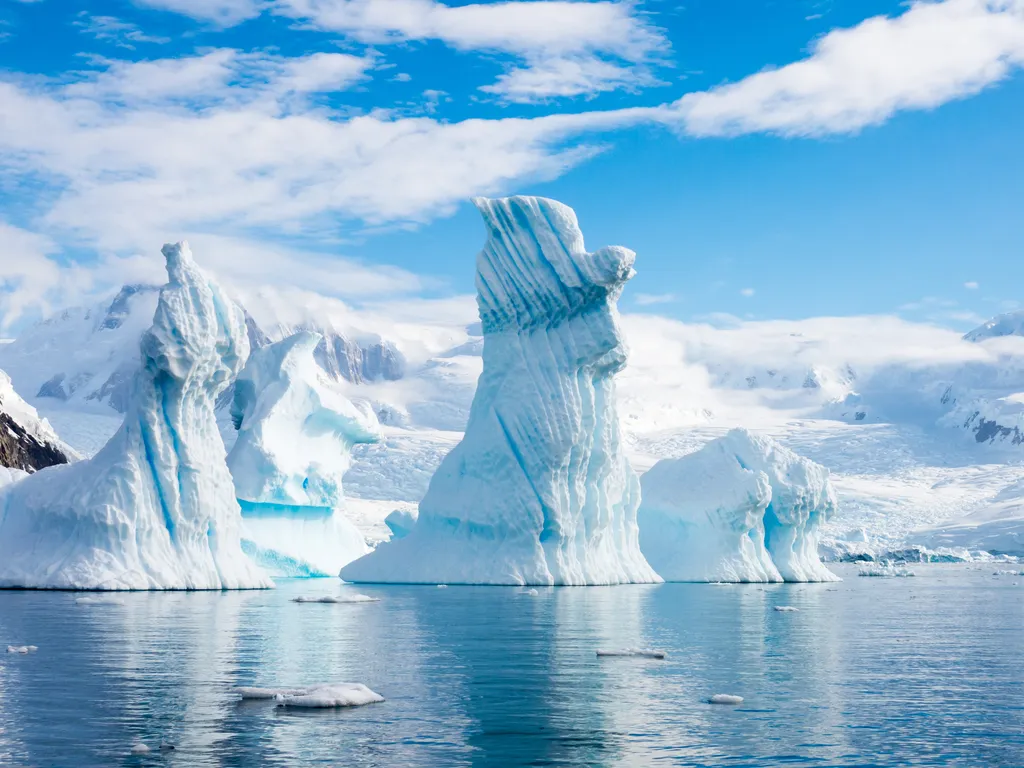
Though global climate change is already getting alarmingly worse by the minute, increasing the number of people on the planet will only intensify the problem. One 2009 study published in the journal Global Environmental Change analyzed the environmental impact of having children and found that in the United States, each child that a person has adds about 9,441 metric tons of carbon dioxide to their legacy. (That's 5.7 times more than the average parent's lifetime emissions of 1,644 metric tons.)
9
Mass plant and animal extinction

If and when overstuffed cities expand to accommodate additional people, many will be forced to overflow into areas that had previously been untouched. The problem? According to the National Wildlife Federation, this expansion is estimated to result in the extinction of up to one third of the world's plant and animal species.
10
Deforestation
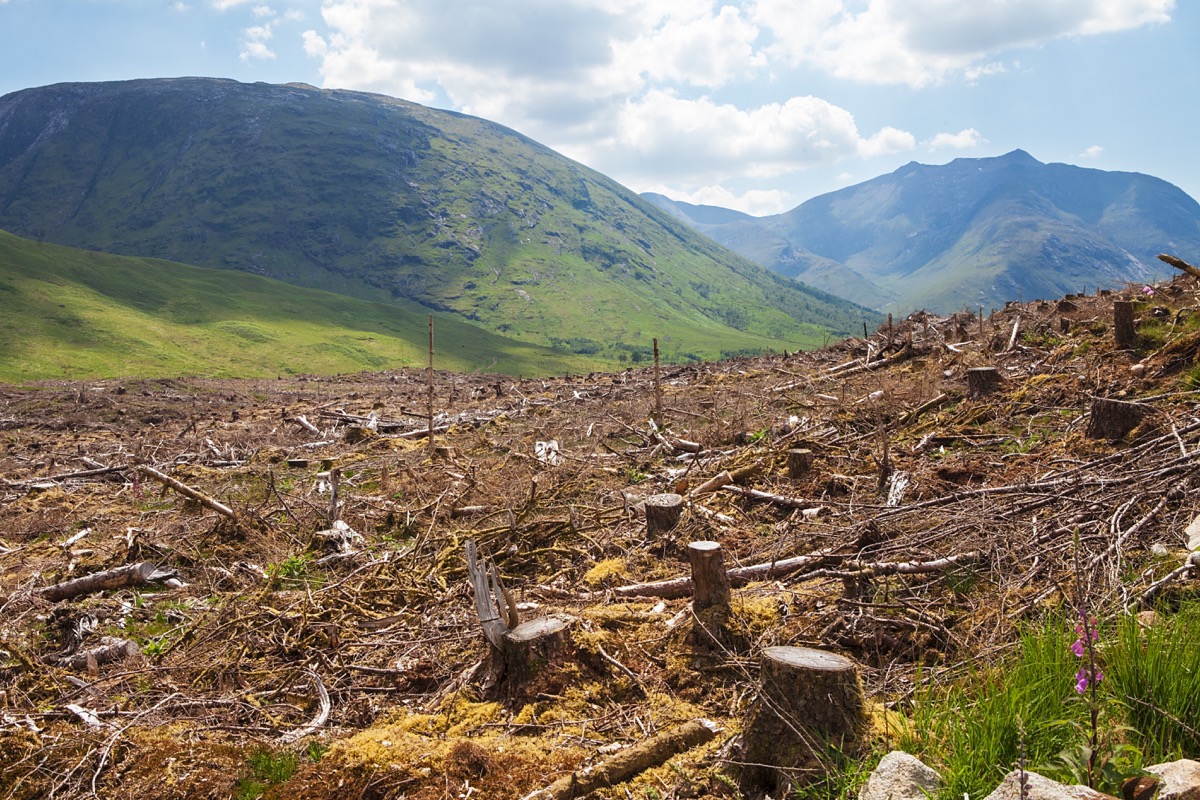
As Swarthmore College Environmental Studies researcher Max Katz-Balmes explains, "overpopulation affects deforestation on a truly global scale, even in relatively uninhabited regions." According to Katz-Balmes, "a clear correlation exists between extremely low population density and maintenance of forests." In other words, the larger the population grows, the worse deforestation will become.
11
Miserable morning commutes
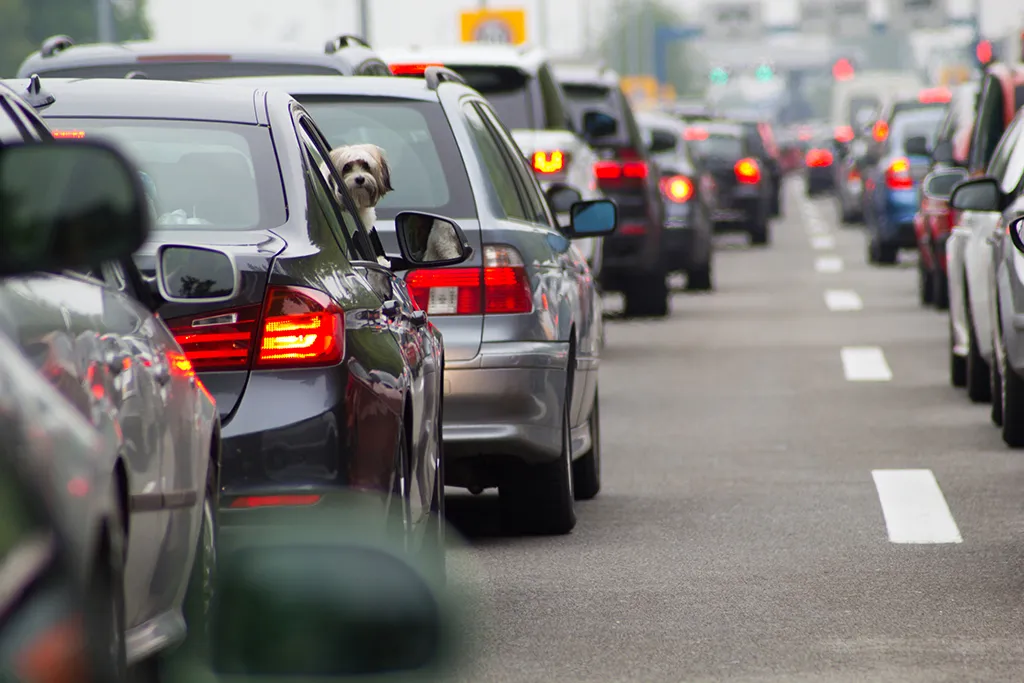
Of course, horrible traffic would be one of the more immediate results of too many people. While infrastructure improvements would eventually help alleviate some congestion, the sheer numbers of cars filling the freeways and roads would mean that getting places would take much longer. If you live in a metropolitan area like New York or Los Angeles, then it's probably hard to imagine traffic getting any worse, but believe us when we say that it's possible.
12
Overcrowded public transportation
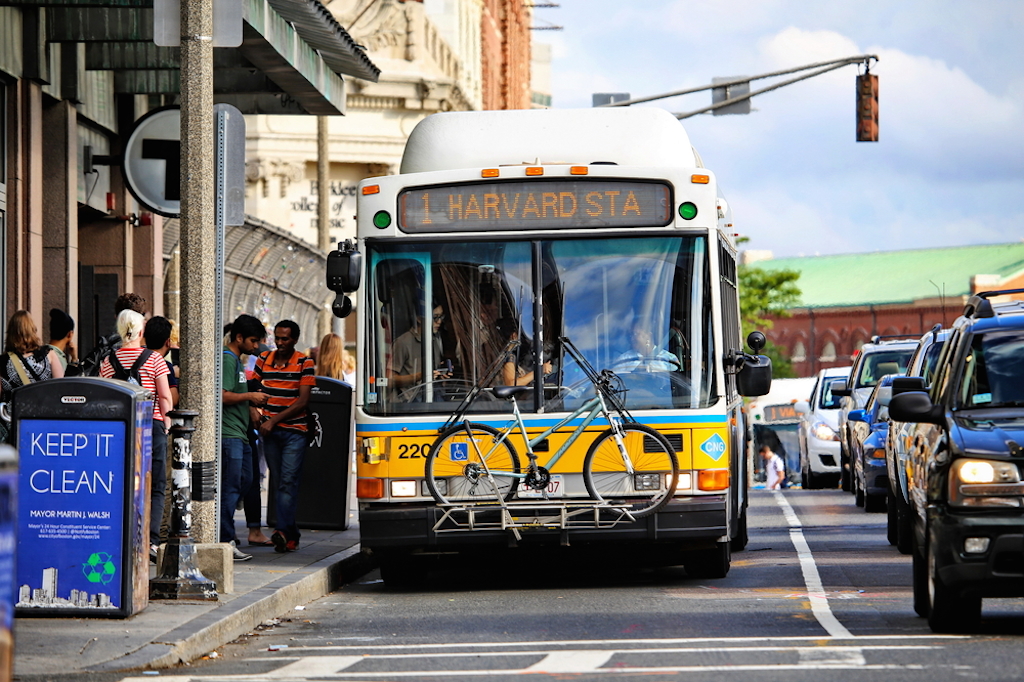
Don't think that your commute will be a breeze in 30 years just because you take the Metro to work. A growing population would also put enormous pressure on subways, buses, and other modes of public transportation. Major cities from New York City to Melbourne already struggle to keep up with their patrons, and this would only get worse should population predictions come true.
13
Skyrocketing food prices

The Food and Agriculture Organization (FAO) projects that food production must increase 70 percent by 2050 to keep pace with growing demand—but if the world population is already struggling to feed itself, then it's unlikely that it'll be able to stay satiated in some 30 years. If production can't support the growing number of people, overpopulation could potentially result in increased food prices.
14
Food shortages

High food prices, frankly, are a good-case scenario. Worst-case scenario is a lack of a food entirely. According to public health resource MPH Online, one in eight people around the world suffered from hunger or undernourishment between 2010 and 2012. This is felt especially in overpopulated parts of the world where demand far outpaces the supply of food—and it will only worsen as the population grows.
15
Overfishing

When the population grows, it will need something to sustain it—namely, protein-rich foods like fish. But, as Dermot O'Gorman, the CEO of World Wildlife Fund Australia, writes, "within 15 years, an additional 115,000 tons of fish will be needed across the Pacific to provide communities with the livelihoods and protein they require."
16
Overgrazing
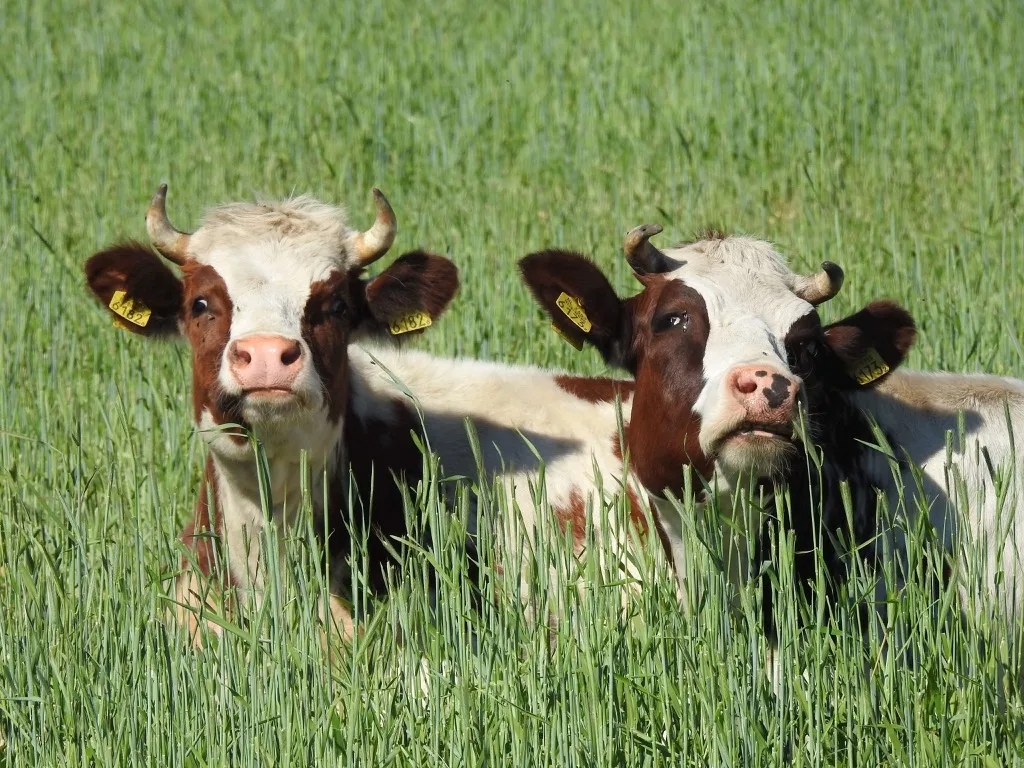
The need to produce more food for a bigger population would put pressure on local and commercial farms, too. This could lead to intensive consumption of plants by livestock, otherwise known as overgrazing. The lack of rotation of grazing animals combined with their overconsumption of the natural resources would degrade the soil and lead to a range of other environmental issues.
17
Increased agricultural runoff
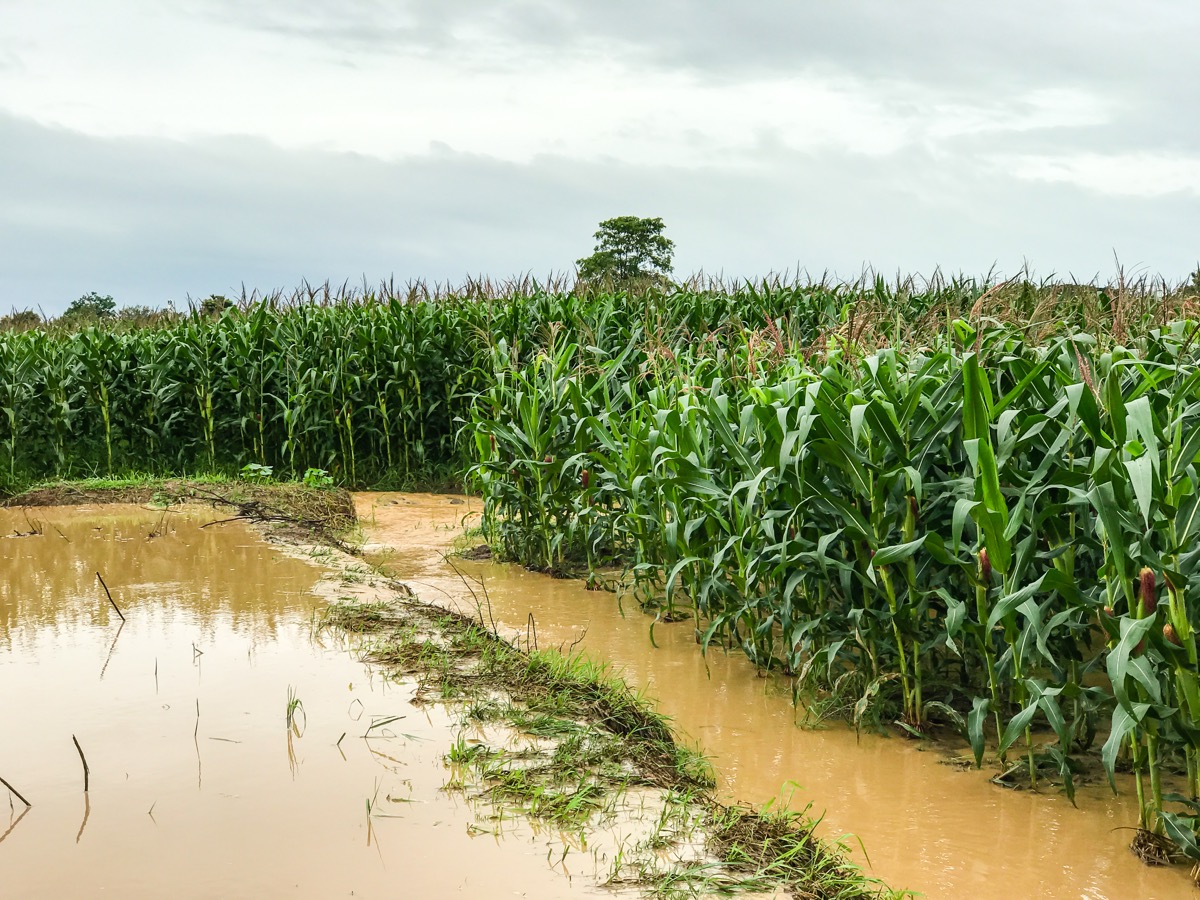
A push for more food—and therefore, more farming—would inevitably lead to an increase in agricultural runoff. This, in turn, would pollute the world's water supplies with things like "sediment, nutrients, pathogens, pesticides, metals, and salts," according to the Environmental Protection Agency (EPA). And the last thing this planet needs is to pollute the freshwater it does have.
18
Severely polluted bodies of water
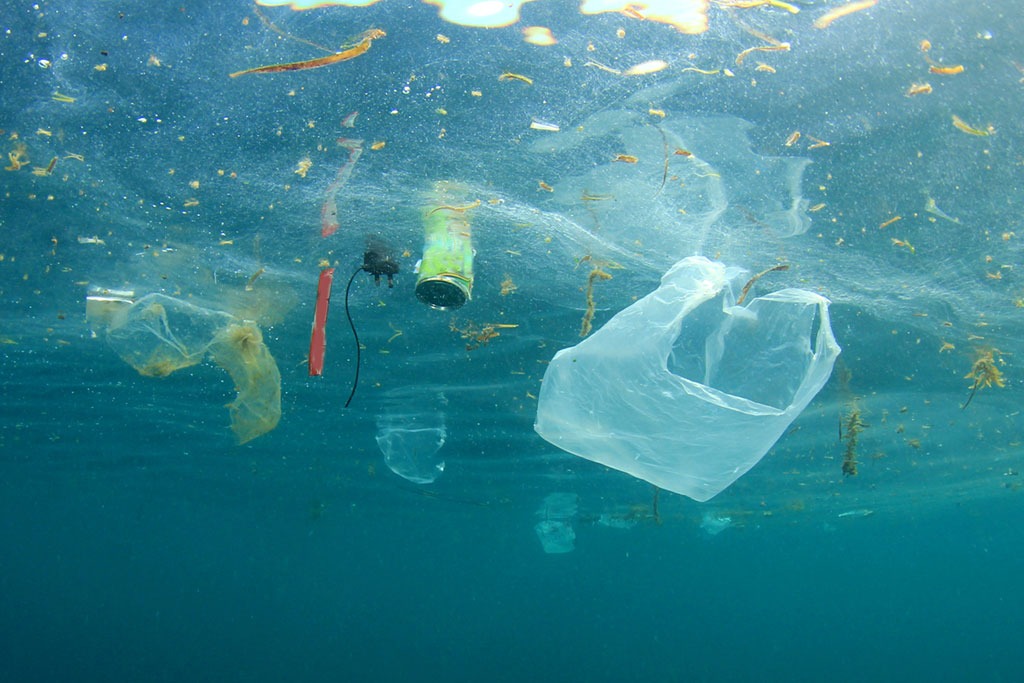
A larger population would threaten the viability of the world's water supplies. As one 2017 article published in the journal Sustainability notes, "human activities pose a significant threat to the water quality of rivers when pollution exceeds the threshold limit," particularly in urban areas that tend to grow at a much more rapid pace.
19
Water scarcity
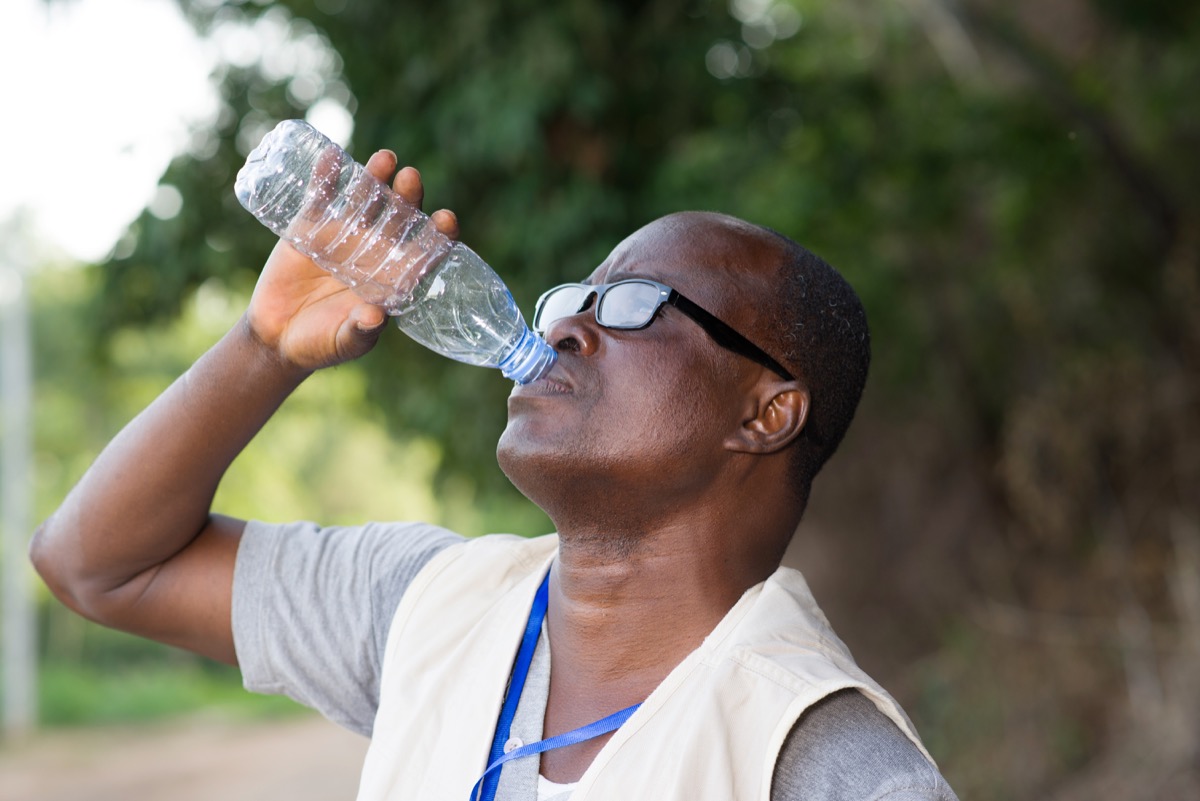
Though an overwhelming majority of the planet is water, only a limited amount of that water is actually fresh water that can be consumed. What's more, the population at its current size is already facing issues related to water scarcity: According to the World Wildlife Fund, approximately 1.1 billion people currently lack access to water, and 2.7 billion people have a limited amount of water available to them for at least one month of the year.
20
Desertification
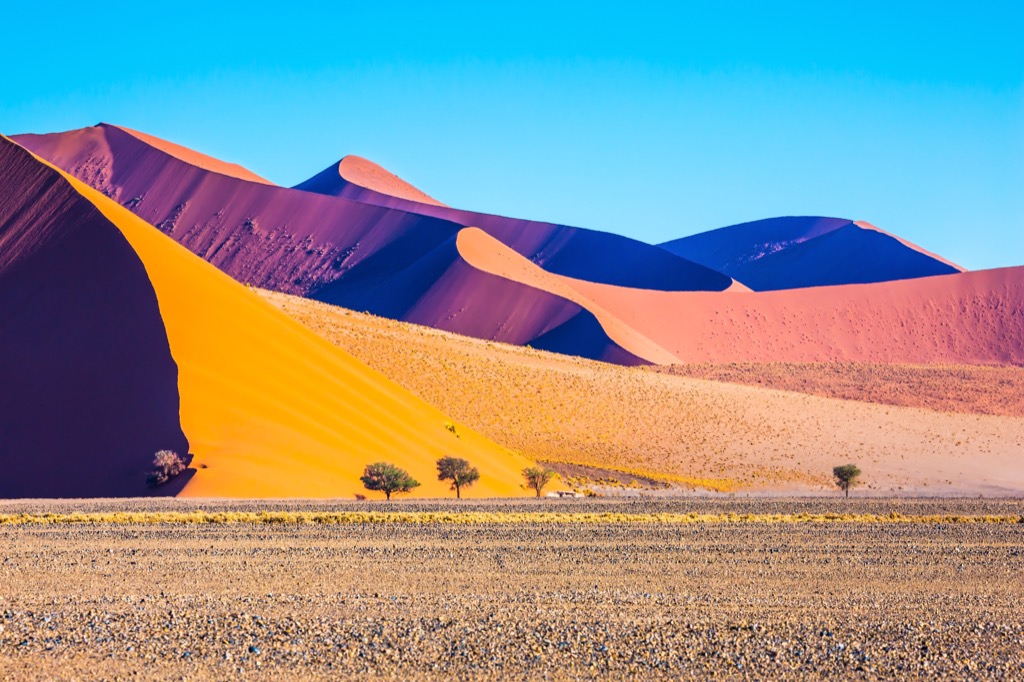
When dry land is overused for cultivation or other purposes, it eventually leads to desertification. According to the International Fund for Agricultural Development, desertification threatens the livelihoods of some 1.2 billion people across 110 countries—a number that is only likely to increase as the population grows.
21
Higher unemployment rates

An unsustainable number of people has the potential to lead to fewer opportunities in the workforce. This leads to what one paper published in the Asian Forum Newsletter refers to as "an imbalance between the supply of labor and the demand for it," one that can "[give] rise to unemployment and underemployment."
22
Decreased economic growth

With more people out of work, the economy will inevitably take a turn for the worse. The same paper published in the Asian Forum Newsletter noted that higher unemployment rates have been found to lead to "low savings and investments… low economic growth and a low standard of living."
23
Depleted government funds
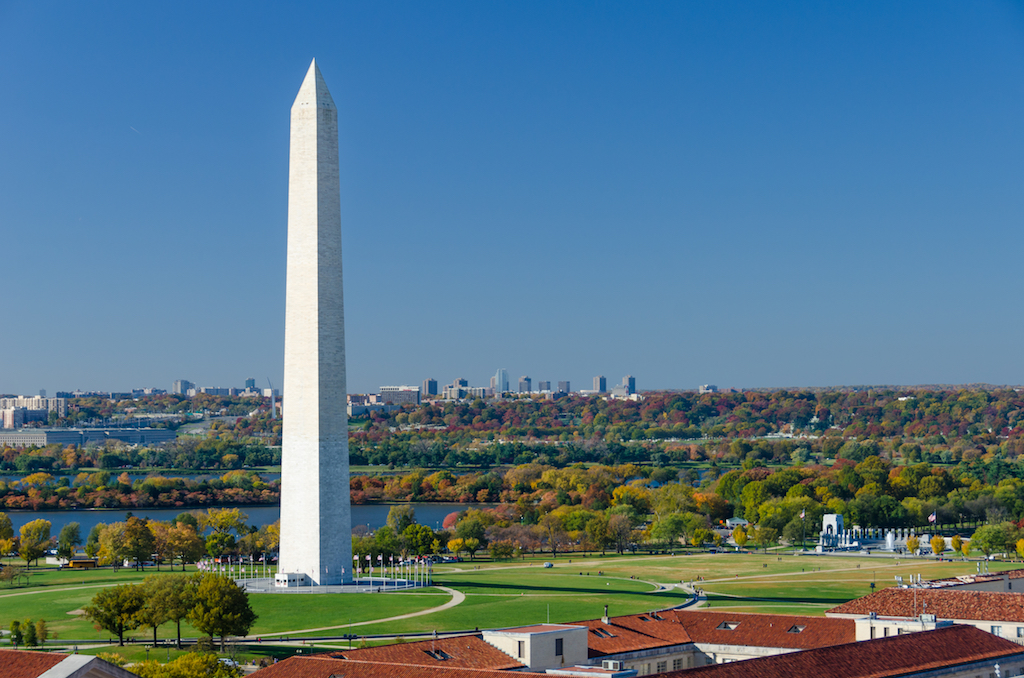
"Even among developed countries, increasing population growth would demand increased expenditures on basic infrastructure, leading to unproductive capital widening at the expensive of capital deepening," notes one paper published in the journal Ecology and Society. In other words, overpopulation would force governments to spread themselves thin in a way that doesn't lead to any increased output or productivity.
24
Fewer nonrenewable resources
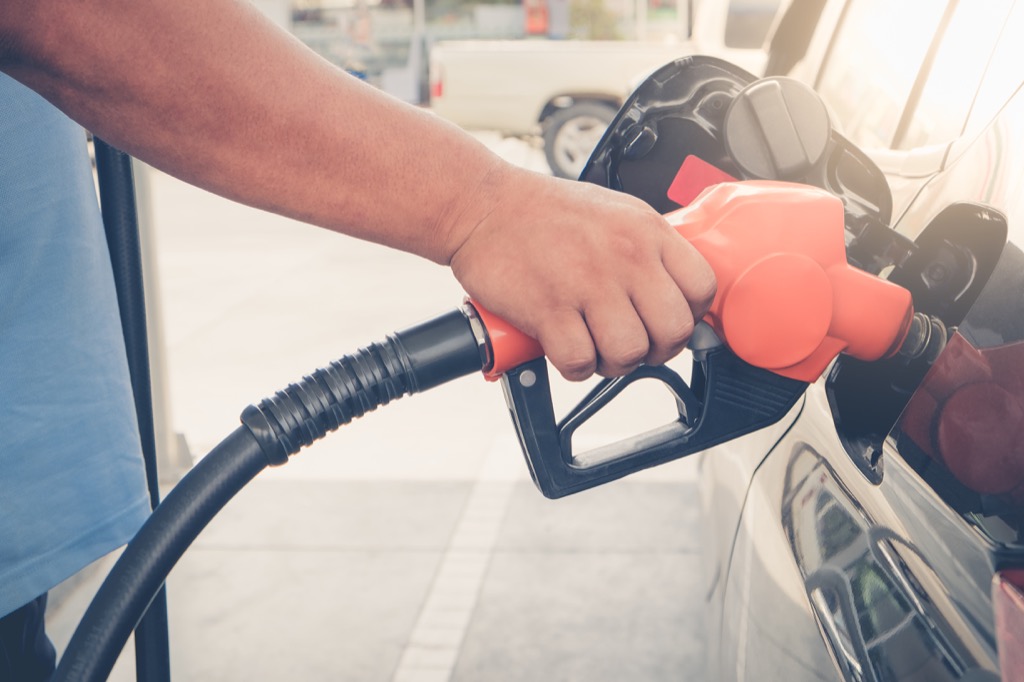
Nonrenewable resources are called such because they cannot be easily replaced by natural means. These include things like gas, oil, and coal. And while we have access to nonrenewable resources now, MPH Online notes that our supplies will run out in 35 years—even sooner if the population continues to grow as rapidly as it currently is.
25
More war

The strain overpopulation puts on resources and opportunities can lead to tension between nations and communities—tension that has the potential to start wars. Looking at the conflicts of Angola and Sudan, Population Institute president Lawrence Smith noted that while overpopulation "is not the exclusive factor [for a lack of stability]… it is such an important one that it is probably the key factor." And for more on the future of the planet, check out How Climate Change Affects Your Health Now and in the Coming Years.
To discover more amazing secrets about living your best life, click here to follow us on Instagram!





















